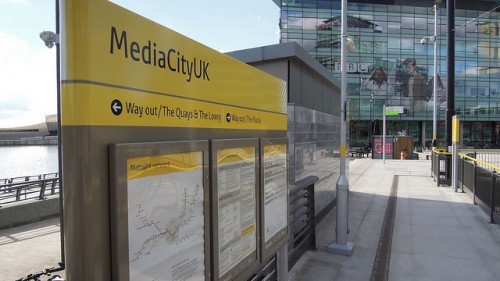Friends of MULE panellist spotlight: Graham Cooper
Article published: Thursday, November 14th 2013
Ahead of the Whose City? Friends of MULE discussion at Black Lion pub this evening, our final panellist Q&A is with Salford community activist and youth worker Graham Cooper.
Graham Cooper is a youth worker, volunteer and community activist in Salford, working with young people, families and local residents in the most disadvantaged and deprived communities in the city against a backdrop of years of ‘regeneration’, ‘development’ and ‘initiatives’ in the area.
MULE: What do you think are the main issues facing people in Salford at the moment?
Salford is a real tale of two cities: the gap between the richest and poorest is the widest in Greater Manchester. In the most affluent ward, child poverty levels are 2.8 per cent, in the least, 53.4 per cent. Huge investment has been ploughed into “projects” such as Media City, the stadium, Port Salford and Greengate, with very little benefit to residents in the most deprived areas.
The problems facing the most disadvantaged in the city are all rooted in poverty, including: lack of sustainable employment paying the Living Wage; barriers to accessing employment; the impact of reforms to benefits, especially the spare room subsidy (“bedroom tax”) and changes to tax credits for part-time workers; high levels of youth unemployment; and disengagement from mainstream services.
Cuts to local government and voluntary sector budgets are impacting more heavily on those on the lowest incomes, and the combination of benefit reforms, the bedroom tax, the slow pace of economic recovery, the fall in wages, and the increase in prices of essential goods and services is threatening to create a ‘perfect storm’, pushing many families into crisis.
MULE: Have regeneration projects such as Media City UK affected community work in recent years?
There have been a lot of projects, but whether any of them can be called regeneration is questionable. Gentrification, social cleansing, re-development – those would come closer. The Media City development came with promises of jobs and opportunities for local people. They have not materialised yet, not in any meaningful way. There have been a lot of other things calling themselves “regeneration” – New Deal for Communities, Housing Market Renewal, SRB funding, the full set. They have not delivered much for existing communities: they have created new housing developments, like the upside down houses in Langworthy and the new apartment blocks in Ordsall and the Quays, which have brought new people into the city, but mostly into gated communities.
Regeneration should be about giving communities the opportunities and resources to have a better environment and future, not about clearing out local people to make way for a “new demographic” to “change Salford”. Our kids need good schools that expect them to succeed and give them the tools they need to make it happen. We need jobs for local people, and the training in place so they can get them.
MULE: Is there any one piece of council policy – by Salford Council or AGMA/GMCA – that you’d like to see introduced to help the people you work with?
There is loads that they could do, but the top one has to be about employment. Any contracts awarded to companies to deliver services and projects should have to have community benefit built in, with guarantees that a certain number of local people will be employed, and apprentices trained, as well as using local suppliers and so on. And that spending on big projects that are about developing the ‘city region’ shouldn’t take priority for money over local need, particularly where more than half the kids live in poverty.
More: News
Comments
No comments found
The comments are closed.




